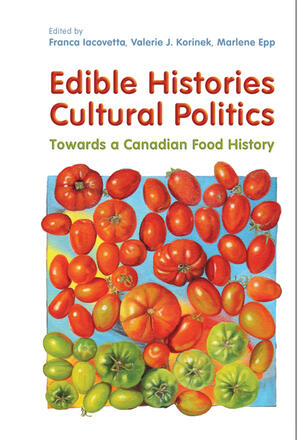
Edible Histories, Cultural Politics
Towards a Canadian Food History
Description
Just as the Canada's rich past resists any singular narrative, there is no such thing as a singular Canadian food tradition. This new book explores Canada's diverse food cultures and the varied relationships that Canadians have had historically with food practices in the context of community, region, nation and beyond. Based on findings from menus, cookbooks, government documents, advertisements, media sources, oral histories, memoirs, and archival collections, Edible Histories offers a veritable feast of original research on Canada's food history and its relationship to culture and politics. This exciting collection explores a wide variety of topics, including urban restaurant culture, ethnic cuisines, and the controversial history of margarine in Canada. It also covers a broad time-span, from early contact between European settlers and First Nations through the end of the twentieth century. Edible Histories intertwines information of Canada's 'foodways' – the practices and traditions associated with food and food preparation – and stories of immigration, politics, gender, economics, science, medicine and religion. Sophisticated, culturally sensitive, and accessible, Edible Histories will appeal to students, historians, and foodies alike.
Reviews
‘Impressive collection of papers… Edible Histories, Cultural Politics provides remarkable, insightful, and eminently readable servings for students, academics, and interested general readers. ’
- Gillian Crowther
‘I can think of no comparable work in any national historiography comprising such a broad range of cutting-edge research in the field of food studies… The editors have done a splendid job. ’
- Jeffrey M. Pilcher